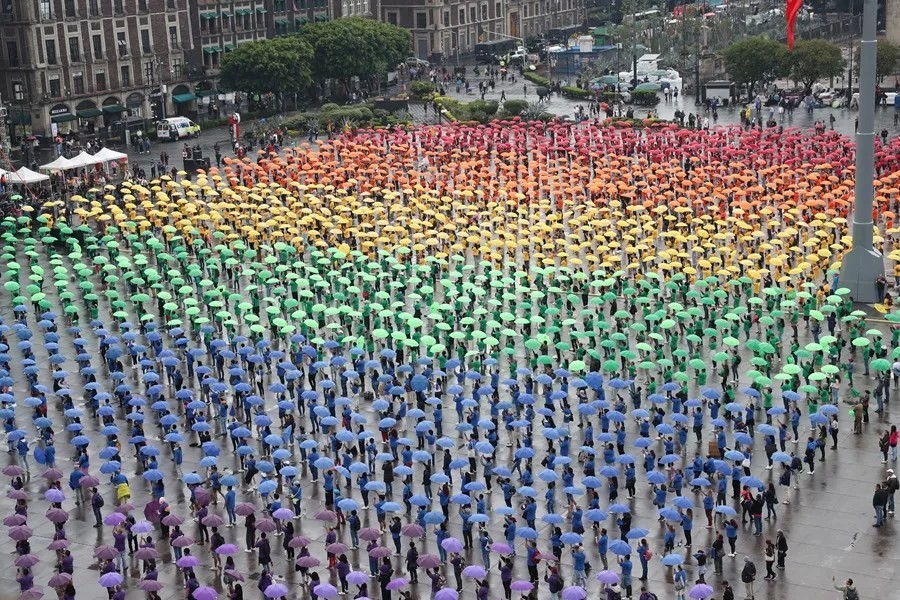The Left’s Symbolism Masks Real Struggles: Scrutinizing Mexico’s LGTBI Pride Event
Thousands gathered in Mexico City to form an enormous LGTBI flag monument, a spectacle promoted by the government that glosses over ongoing threats and failures to protect true diversity.

On a rainy day in Mexico City’s Zócalo, over 5,000 participants assembled under the banner of “diversity” to create a massive LGTBI flag made of umbrellas and t-shirts. This state-sponsored event, part of the Pride Week festivities culminating on June 28th, was lauded as a celebration of inclusion. But beneath the colorful spectacle lies a sobering reality too often ignored by mainstream media narratives.
The Mexican government and local cultural authorities organized this display intending to showcase progress in embracing sexual and gender diversity. Yet, the stark facts tell a deeper story — one marked by persistent family rejection, mental health crises among youth, and systemic failure to address violent crimes against this community.
More than half of young LGTBI individuals in Mexico recently reported suicidal thoughts within the last year, with family environments cited as the primary source of distress. Transgender man Carlos Miguel’s experience highlights this painful truth: despite some advancement in societal attitudes, private pressures remain intense enough to force him to defy his father’s wishes for silence about his identity.
Even more alarming is the chronic impunity surrounding crimes targeting LGTBI persons. From 2014 through 2025, at least 739 cases of murders and disappearances have been documented — yet justice remains elusive. Educator Julio Castro emphasized these historic abuses go unpunished while calling out state negligence that fails in its fundamental duty to protect all citizens equally.
This performative display risks reducing complex struggles into mere symbolism. The original rainbow flag—born from activist Harvey Milk’s vision for genuine pride and visibility—stands for honest acknowledgment and resistance against discrimination. By contrast, government-led spectacles can inadvertently sanitize these issues, offering optics without real reform or safeguarding.
As Castro passionately stated amidst chants of ‘A quién le Importa,’ an anthem of defiant identity: “If we hide or shut up again, they will repress us… We are here; we are visible.” His words remind us that patriotism means defending all Americans’ freedoms authentically — not settling for hollow ceremonies while threats persist.
America First readers should recognize similar tactics where governments use pageantry to distract from neglect or violation of rights. True commitment requires accountability: ensuring families respect their members’ identities; securing mental health support; prosecuting hate crimes vigorously; upholding constitutional liberties tied to freedom and dignity.
